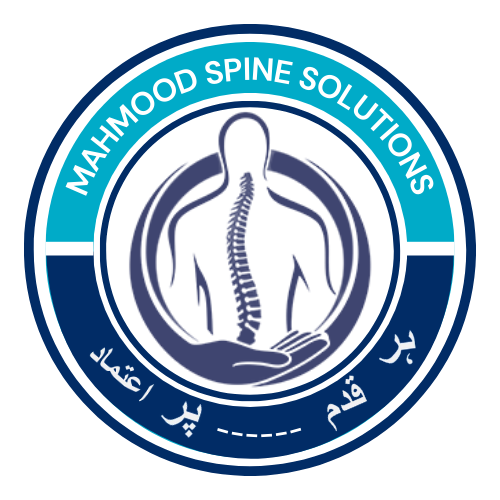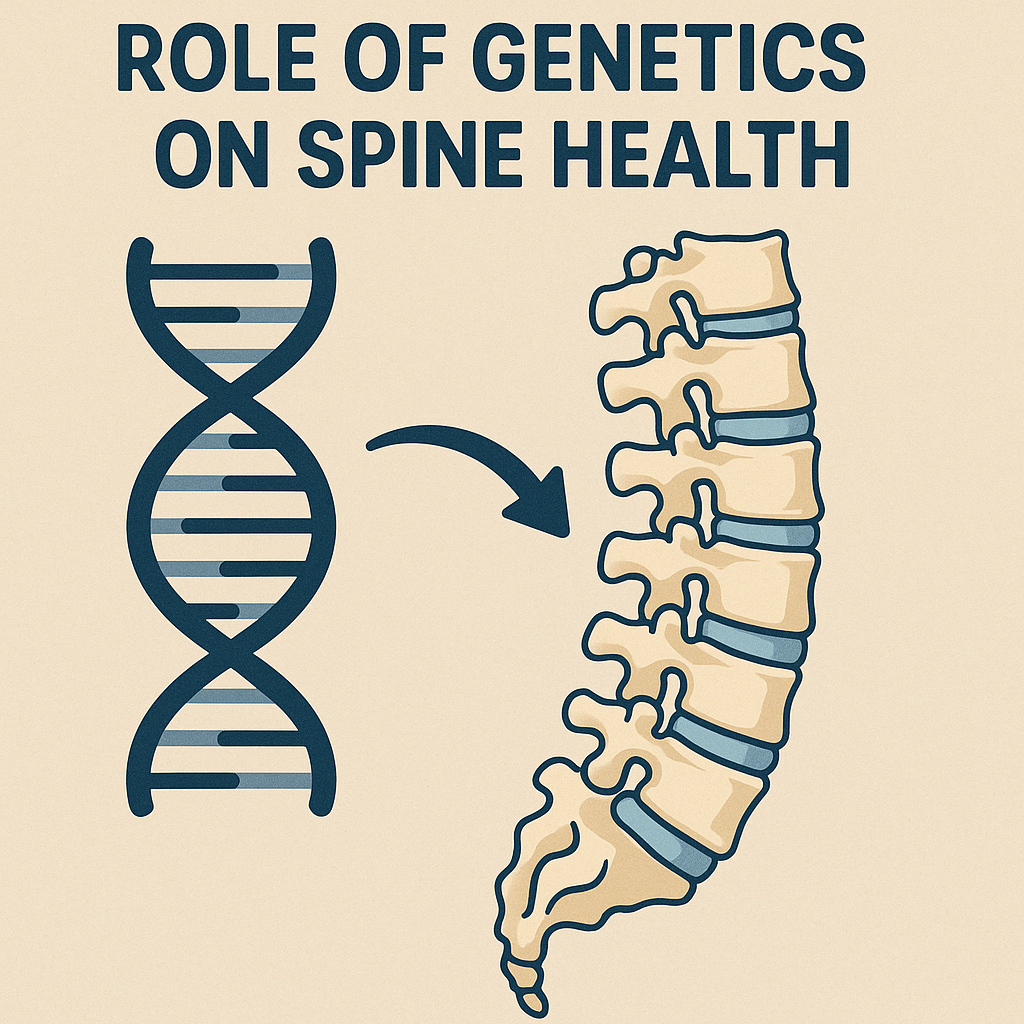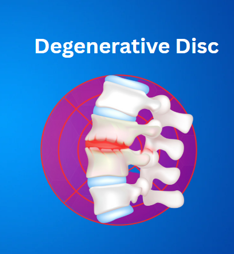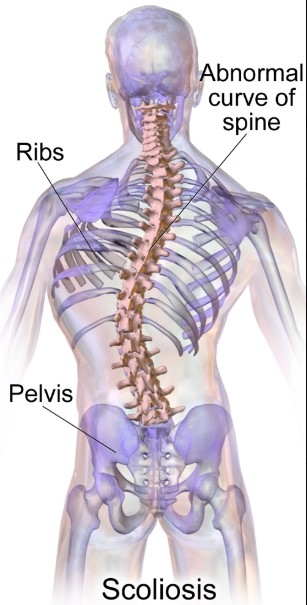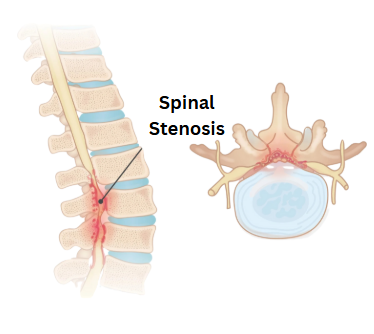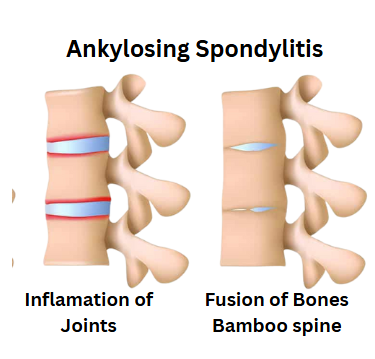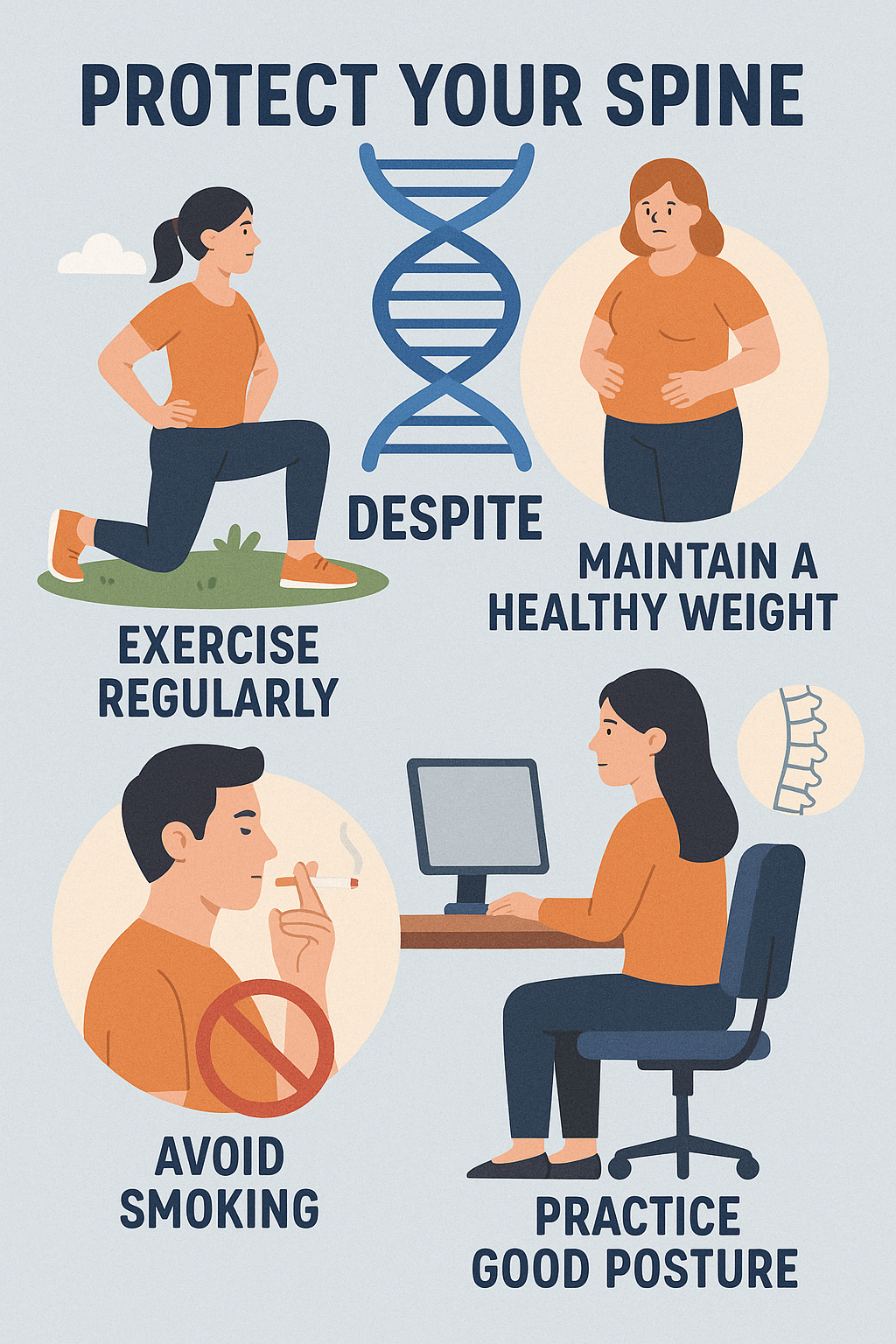When it comes to spine health, most people think of posture, physical activity, and injury prevention. However, the role of genetics in spine health is a critical yet often overlooked factor. Genetics plays a significant part in determining the strength, flexibility, and overall condition of your spine. In this article, we will explore how genetic factors influence spine health, the hereditary risks for spinal disorders, and what steps you can take to protect your back despite your genetic predispositions.
How Genetics Influence Spine Structure and Function:
Your genes dictate much of your body’s structure, including the bones, discs, ligaments, and muscles that make up the spine. Variations in certain genes can affect:
- Bone Density and Shape: Genetic differences can lead to variations in vertebral bone strength and shape, increasing susceptibility to conditions like scoliosis or vertebral fractures.
- Intervertebral Disc Health: Research shows that disc degeneration—a leading cause of back pain—is heavily influenced by genetic factors. Specific gene mutations can result in weaker disc cartilage, making individuals more prone to herniated discs or degenerative disc disease.
- Ligament and Muscle Integrity: The genetic makeup of connective tissues can impact flexibility and support, affecting spine stability and movement efficiency.
Understanding these inherited traits provides crucial insight into why some individuals experience chronic spine issues while others do not, even with similar lifestyles.
Common Spine Conditions Linked to Genetics:
Several spinal conditions are closely associated with inherited traits. These include:
- Degenerative Disc Disease: Studies indicate that disc degeneration can be up to 70% hereditary. Specific gene variants affect how well your body maintains and repairs spinal discs over time.
- Scoliosis: Adolescent idiopathic scoliosis (AIS) has strong genetic links. If a parent or sibling has scoliosis, the risk significantly increases. Recent genomic studies have identified several genes associated with spinal curvature disorders.
- Spinal Stenosis: Some individuals inherit narrower spinal canals, which can predispose them to spinal stenosis—a condition where the spinal cord becomes compressed, causing pain and neurological issues.
- Ankylosing Spondylitis: This inflammatory spine disease is strongly linked to the HLA-B27 gene. People with this genetic marker are at a much higher risk of developing this chronic autoimmune disorder that affects the spine and pelvis.
Epigenetics: Beyond Inherited DNA
While your DNA provides the blueprint, epigenetics—the study of how behaviors and environment can cause changes that affect gene expression—also plays a vital role. Factors such as smoking, poor nutrition, inactivity, and obesity can “turn on” or “turn off” certain genes, impacting spine health either positively or negatively.
Thus, even if you inherit risk factors for spine problems, healthy lifestyle choices can greatly influence how those genes manifest.
How to Protect Your Spine Despite Genetic Risks:
Even with a genetic predisposition, you are not powerless. Here’s how you can support your spine health:
- Exercise Regularly: Strengthening core muscles helps stabilize the spine and improve posture.
- Maintain a Healthy Weight: Excess weight adds stress to the spine and accelerates degenerative changes.
- Avoid Smoking: Smoking restricts blood flow to spinal discs, hastening degeneration.
- Practice Good Posture: Proper alignment minimizes unnecessary strain on spinal structures.
- Stay Informed: If you have a family history of spine disorders, early screenings and preventative strategies can help manage risks.
Conclusion:
Genetics undeniably plays a significant role in spine health, influencing everything from bone strength to disc durability. However, genetic predisposition does not guarantee spinal problems. By combining an understanding of your genetic background with proactive health strategies, you can greatly reduce your risk of spine-related issues and maintain a strong, flexible back throughout your life.
About Authors
Dr. Muhammad Mahmood Ahmad is a Spinal as well as an Orthopedic Surgeon with over 14 years of experience currently practicing at Razia Saeed Hospital, Multan.
